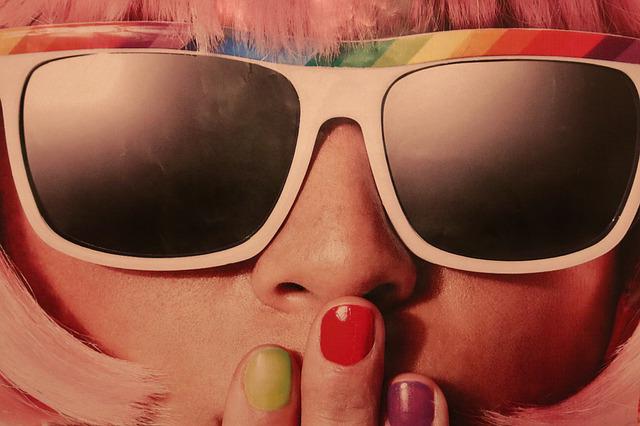Perhaps you have heard the saying, “my future is so bright, I gotta wear shades?” Well not only is your future bright, but the world we live in is already really bright too. It’s so bright that the rays from the sun may not only be damaging your skin but also your eyes. Just as you might remember to put on sunscreen or a hat while out in the sun, don’t forget your eyes. Eyes can be damaged by the sun all year round. “UV radiation, whether from natural sunlight or indoor artificial rays, can damage the eye’s surface tissues as well as the cornea and lens,” says ophthalmologist Michael Kutryb, MD, a spokesperson for the American Academy of Ophthalmology (AAOO). “Unfortunately, many people are unaware of the dangers UV light can pose. By wearing UV-blocking sunglasses, you can enjoy the summer safely while lowering your risk for potentially blinding eye diseases and tumors.” Next time you are heading outside, going for a drive, or maybe just sitting outside at lunch, remember, we all gotta wear shades!
Shades (sunglasses) aren’t just about accessorizing; they play a key role in eye health and safety. There are two serious ways that sunglasses can help you out. They help filter light that can be damaging to your eyes, and they help protect the eyes against damaging ultraviolet rays (UV rays.) UV rays have been known to cause many conditions that aren’t limited to but include cataracts and retinal dysfunction. Those shades you put on not only help filter the sun and protect them from damaging rays, but they can also be a great barrier between your eyes and the elements like dust in the air, and other contaminants. Not to mention, they are certainly helpful for being able to see well in the sun.
Not all sunglasses are created equal. When looking for quality eye protection you want to be looking for sunglasses that are marked with “UV protection.” Some glasses indicate they have “UV-A” and/or “UV-B” protection. Both are better! These are the blockers that help filter that light coming into your eyes. Look for larger sunglasses that really cover the eyes well. If glasses are not marked with this safety feature, keep looking, non-marked glasses likely have little protection. The AAOO says, “Many sunglasses shoppers forget to check the UV rating before purchasing a pair. Be sure to select sunglasses that provide 100% UV or UV400 protection, or block both UV-A and UV-B rays.” There are also polarized glasses that can help too. Polarized lenses reduce the concentration of the reflection off of surfaces. This kind of lens is the best choice when you spend time at the pool or beach, playing water sports, or driving.
If you are wondering who is at risk of eye damage from the sun, yes you are! We all are! Therefore, you may see more and more children sporting their new sunglasses, because we know that even the littlest people around us need to protect their eyes. It isn’t about making a fashion statement, it’s about safety. Anyone in the sun, on the beach, watching sports on the sidelines, or even sitting in the car can be exposed to damaging rays. When it comes to children, start them with healthy eye habits young and have them wear sunglasses and a hat. Letting your child pick out a fun color may help them to be more cooperative about this healthy practice. Eye health can be fun too!
Year-round we are given many opportunities to protect our eyes or to damage them. Every time you are not wearing your protective glasses, you are potentially harming your eyesight. Start by making sure you have glasses in appropriate places like in the car, in your beach bag, and a pair just in case. Many glasses are inexpensive which can help you to keep them on hand for when you need them. You never know when you might go sit outside for lunch, have a chance to take a walk, or even in the winter while driving. When in doubt if the sun is out you should have “UV” safe glasses on. The sun is bright, and it’s also damaging, grab those sunglasses because we all gotta wear shades!
Mary Hoadley
Director of The Wellness Center


